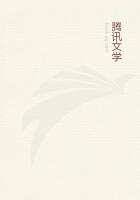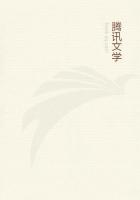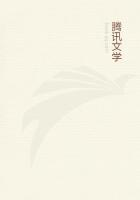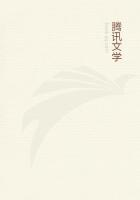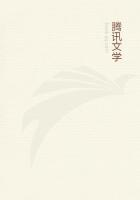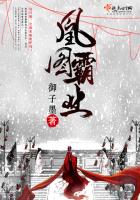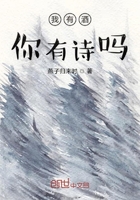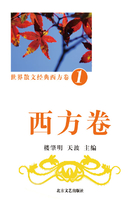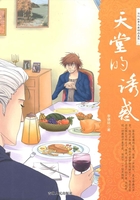I cannot say at what times I read these books, but they must have been odd times, for life was very full of play then, and was already beginning to be troubled with work. As I have said, I was to and fro between the schoolhouse and the printing-office so much that when I tired of the one I must have been very promptly given my choice of the other. The reading, however, somehow went on pretty constantly, and no doubt my love for it won me a chance for it. There were some famous cherry-trees in our yard, which, as I look back at them, seem to have been in flower or fruit the year round; and in one of them there was a level branch where a boy could sit with a book till his dangling legs went to sleep, or till some idler or busier boy came to the gate and called him down to play marbles or go swimming. When this happened the ancient world was rolled up like a scroll, and put away until the next day, with all its orators and conspirators, its nymphs and satyrs, gods and demigods; though sometimes they escaped at night and got into the boy's dreams.
I do not think I cared as much as some of the other boys for the 'Arabian Nights' or 'Robinson Crusoe,' but when it came to the 'Ingenious Gentleman of La Mancha,' I was not only first, I was sole.
Before I speak, however, of the beneficent humorist who next had my boyish heart after Goldsmith, let me acquit myself in full of my debt to that not unequal or unkindred spirit. I have said it was long after I had read those histories, full of his inalienable charm, mere pot-boilers as they were, and far beneath his more willing efforts, that I came to know his poetry. My father must have read the "Deserted Village" to us, and told us something of the author's pathetic life, for I cannot remember when I first knew of "sweet Auburn," or had the light of the poet's own troubled day upon the "loveliest village of the plain."
The 'Vicar of Wakefield' must have come into my life after that poem and before 'The Traveler'. It was when I would have said that I knew all Goldsmith; we often give ourselves credit for knowledge in this way without having any tangible assets; and my reading has always been very desultory. I should like to say here that the reading of any one who reads to much purpose is always very desultory, though perhaps I had better not say so, but merely state the fact in my case, and own that I never read any one author quite through without wandering from him to others. When I first read the 'Vicar of Wakefield' (for I have since read it several times, and hope yet to read it many times), I found its persons and incidents familiar, and so I suppose I must have heard it read. It is still for me one of the most modern novels: that is to say, one of the best. It is unmistakably good up to a certain point, and then unmistakably bad, but with always good enough in it to be forever imperishable. Kindness and gentleness are never out of fashion; it is these in Goldsmith which make him our contemporary, and it is worth the while of any young person presently intending deathless renown to take a little thought of them. They are the source of all refinement, and I do not believe that the best art in any kind exists without them. The style is the man, and he cannot hide himself in any garb of words so that we shall not know somehow what manner of man he is within it; his speech betrayeth him, not only as to his country and his race, but more subtly yet as to his heart, and the loves and hates of his heart. As to Goldsmith, I do not think that a man of harsh and arrogant nature, of worldly and selfish soul, could ever have written his style, and I do not think that, in far greater measure than criticism has recognized, his spiritual quality, his essential friendliness, expressed itself in the literary beauty that wins the heart as well as takes the fancy in his work.
I should have my reservations and my animadversions if it came to close criticism of his work, but I am glad that he was the first author I loved, and that even before I knew I loved him I was his devoted reader.
I was not consciously his admirer till I began to read, when I was fourteen, a little volume of his essays, made up, I dare say, from the 'Citizen of the World' and other unsuccessful ventures of his. It contained the papers on Beau Tibbs, among others, and I tried to write sketches and studies of life in their manner. But this attempt at Goldsmith's manner followed a long time after I tried to write in the style of Edgar A. Poe, as I knew it from his 'Tales of the Grotesque erred Arabesque.' I suppose the very poorest of these was the "Devil in the Belfry," but such as it was I followed it as closely as I could in the "Devil in the Smoke-Pipes"; I meant tobacco-pipes. The resemblance was noted by those to whom I read my story; I alone could not see it or would not own it, and I really felt it a hardship that I should be found to have produced an imitation.
It was the first time I had imitated a prose writer, though I had imitated several poets like Moore, Campbell, and Goldsmith himself.
I have never greatly loved an author without wishing to write like him.
I have now no reluctance to confess that, and I do not see why I should not say that it was a long time before I found it best to be as like myself as I could, even when I did not think so well of myself as of some others. I hope I shall always be able and willing to learn something from the masters of literature and still be myself, but for the young writer this seems impossible. He must form himself from time to time upon the different authors he is in love with, but when he has done this he must wish it not to be known, for that is natural too. The lover always desires to ignore the object of his passion, and the adoration which a young writer has for a great one is truly a passion passing the love of women. I think it hardly less fortunate that Cervantes was one of my early passions, though I sat at his feet with no more sense of his mastery than I had of Goldsmith's.

